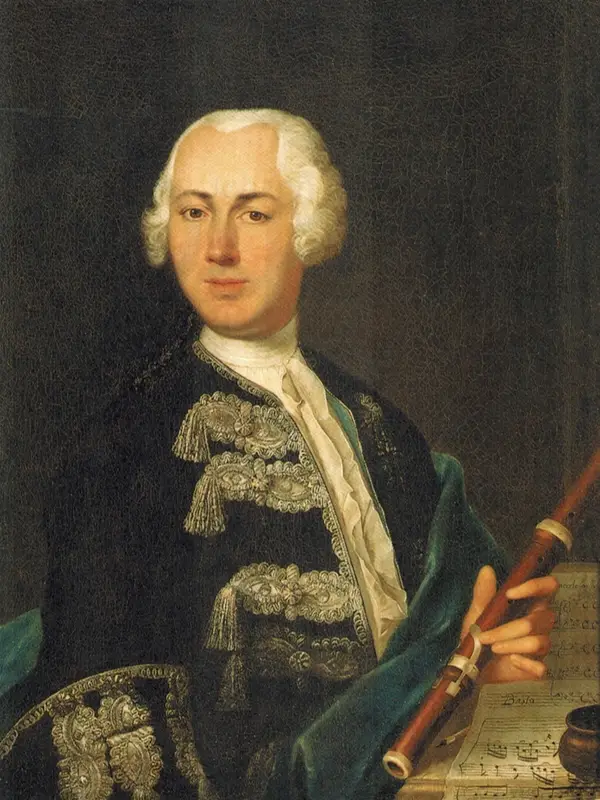
Johann Joachim Quantz (1697 – 1773)
Johann Joachim Quantz was a seminal German flutist, composer, and flute maker, celebrated for his substantial contributions to the development of the flute and its music during the Baroque era.
Early Life and Musical Foundations
Johann Joachim Quantz was born in 1697 in Oberscheden, near Göttingen, Germany. His early musical training was influenced by the death of his parents, leading him to seek apprenticeship under a town musician. This foundation led him to Dresden, where he shifted his focus from the oboe and violin to the flute, under the tutelage of Pierre-Gabriel Buffardin.
Rise to Prominence
Quantz’s career flourished in Dresden, where he immersed himself in the vibrant musical scene and began composing extensively for the flute. His mastery of the instrument and innovative compositions quickly established him as one of Europe’s leading flutists. His talents caught the attention of Frederick the Great of Prussia, whom he served as a court musician and personal flute teacher after 1741.
Contributions to Flute Music and Pedagogy
Quantz was pivotal in the evolution of flute music during the Baroque period. He composed over 300 flute concertos and more than 200 sonatas, which significantly enriched the flute repertoire. His methodological treatise, “Versuch einer Anweisung die Flöte traversiere zu spielen” (On Playing the Flute), published in 1752, remains a fundamental resource for understanding Baroque flute technique and performance practices. This work outlined detailed instructions on playing techniques, ornamentation, and musical expression, which have influenced generations of flutists.
Legacy and Impact
Quantz’s impact on the music world extends beyond his compositions. He made significant mechanical improvements to the flute, including adding a second key, which helped shape the instrument’s development. His dedication to the craft and his role at the Prussian court under Frederick the Great highlight his importance in the cultural and musical advancements of his time.
Quantz passed away in 1773, but his legacy lives through his extensive contributions to flute music and his influence on musical performance and education practices during the Baroque period. His works continue to be studied and performed, underscoring his lasting impact on classical music.
Birthday of Johann Joachim Quantz

